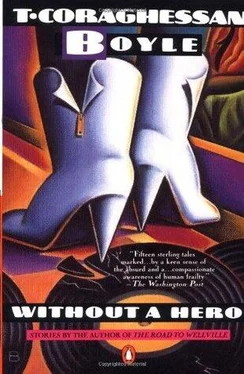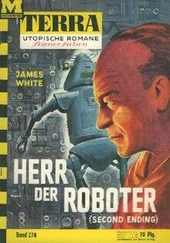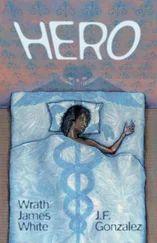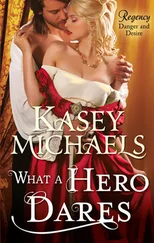T. Boyle - Without a Hero
Здесь есть возможность читать онлайн «T. Boyle - Without a Hero» весь текст электронной книги совершенно бесплатно (целиком полную версию без сокращений). В некоторых случаях можно слушать аудио, скачать через торрент в формате fb2 и присутствует краткое содержание. Год выпуска: 1995, Издательство: Penguin Books, Жанр: Современная проза, на английском языке. Описание произведения, (предисловие) а так же отзывы посетителей доступны на портале библиотеки ЛибКат.
- Название:Without a Hero
- Автор:
- Издательство:Penguin Books
- Жанр:
- Год:1995
- ISBN:нет данных
- Рейтинг книги:3 / 5. Голосов: 1
-
Избранное:Добавить в избранное
- Отзывы:
-
Ваша оценка:
- 60
- 1
- 2
- 3
- 4
- 5
Without a Hero: краткое содержание, описание и аннотация
Предлагаем к чтению аннотацию, описание, краткое содержание или предисловие (зависит от того, что написал сам автор книги «Without a Hero»). Если вы не нашли необходимую информацию о книге — напишите в комментариях, мы постараемся отыскать её.
Greasy Lake
People
Without a Hero
The Philadelphia Inquirer
Without a Hero — читать онлайн бесплатно полную книгу (весь текст) целиком
Ниже представлен текст книги, разбитый по страницам. Система сохранения места последней прочитанной страницы, позволяет с удобством читать онлайн бесплатно книгу «Without a Hero», без необходимости каждый раз заново искать на чём Вы остановились. Поставьте закладку, и сможете в любой момент перейти на страницу, на которой закончили чтение.
Интервал:
Закладка:
Ray Arthur Larry-Pete made the long limp across the room to join them, setting his tray down gingerly and using both his hands to brace himself as he lowered his bruised backside to the unforgiving hardwood slats of the bench. Then, still employing his hands, he lifted first one and then the other deadened leg over the bench and into the well beneath the table. He grunted, winced, cursed, broke wind. Then he nodded to his teammates, worked his spine into the swallowing position and addressed himself to his food.
After a moment, DuBoy spoke. He was wearing a neck brace in the place where his head was joined to his shoulders, and it squeezed the excess flesh of his jowls up into his face so that he looked like an enormous rodent. “How you feeling?”
You didn’t speak of pain. You toughed it out — that was the code. Coach Tundra had been in the army in Vietnam at some place Ray Arthur Larry-Pete could never remember or pronounce, and he didn’t tolerate whiners and slackers. Pain ? he would yelp incredulously at the first hint that a player was even thinking of staying down. Tell it to the 101st Airborne, to the boys taking a mortar round in the la Drang Valley or the grunts in the field watching their buddies get blown away and then crawling six miles through a swamp so thick it would choke a snake with both their ears bleeding down their neck and their leg gone at the knee. Get up, soldier. Get out there and fight ! And if that didn’t work, he’d roll up his pantleg to show off the prosthesis.
Ray Arthur Larry-Pete glanced up at DuBoy. “I’ll live. How about you?”
DuBoy tried to shrug as if to say it was nothing, but even the faintest lift of a shoulder made him gasp and slap a hand to the neck brace as if a hornet had stung him. “No…big thing,” he croaked finally.
There was no sound then but for the onomatopoeia of the alimentary process — food going in, jaws seizing it, throats closing on the load and opening again for the next — and the light trilling mealtime chatter of their fellow students, the ones unencumbered by casts and groin pulls and bloody toilets. Ray Arthur Larry-Pete was depressed. Over the loss, sure — but it went deeper than that. He was brooding about his college career, his job prospects, life after football. There was a whole winter, spring and summer coming up in which, for the first time in as long as he could remember, he wouldn’t have to worry about training for football season, and he couldn’t imagine what that would be like. No locker room, no sweat, no pads, no stink of shower drains or the mentholated reek of ointment, no jock itch or aching muscles, no training table, no trainer — no chance, however slim, for glory….
And more immediately, he was fretting about his coursework. There was the Phys. Comm. exam he hadn’t been able to study for, and the quiz the professor would almost certainly spring in Phys. Ed., and there were the three-paragraph papers required for both Phys. Training and Phys. Phys., and he was starting to get a little paranoid about Suzie, one of the quintessentially desirable girls on campus, with all her assets on public view, and what did he have to offer her but the glamour of football? Why had she backed out on their date? Did this mean their engagement was off, that she wanted a winner, that this was the beginning of the end?
He was so absorbed in his thoughts he didn’t register what Moss was saying when he dropped his bomb into the little silence at the table. Moss was wearing a knee brace and his left arm was in a sling. He was using his right to alternately take a bite of his own food and to lift a heaping forkful from Kitwany’s plate to Kitwany’s waiting lips. Kitwany was in a full-shoulder harness, both arms frozen in front of him as if he were a sleepwalker cast in plaster of Paris. Ray Arthur Larry-Pete saw Moss’s mouth working, but the words flew right by him. “What did you say, Moss?” he murmured, looking up from his food.
“I said Coach says we’re probably going to have to forfeit to State.”
Ray Arthur Larry-Pete was struck dumb. “Forfeit?” he finally gasped, and the blood was thundering in his temples. “What the hell do you mean, forfeit?”
A swirl of snow flurries scoured his unprotected ears as he limped grimly across the quad to the Phys. Ed. building, muttering under his breath. What was the Coach thinking? Didn’t he realize this was the seniors’ last game, their last and only chance to assuage the sting of 56–0, the final time they’d ever pull on their cleats against State, Caledonia’s bitterest rival, a team they hadn’t beaten in modern historical times? Was he crazy?
It was cold, wintry, the last week in November, and Ray Arthur Larry-Pete Fontinot had to reach up with his good hand to pull his collar tight against his throat as he mounted the big concrete steps brushed with snow. The shooting hot-wire pains that accompanied this simple gesture were nothing, nothing at all, and he barely grimaced, reaching down automatically for the push-bar on the big heavy eight-foot-tall double doors. He nodded at a pair of wrestlers running the stairs in gym shorts, made his way past the woefully barren trophy case (Caledonia College, Third Place Divisional Finish, 1938 read the inscription on the lone trophy, which featured a bronzed figurine in antiquated leather headgear atop a pedestal engraved with the scores of that lustrous long-ago 6-and-5 season, the only winning season Caledonia could boast of in any of its athletic divisions, except for women’s field hockey and who counted that?), tested his knees on the third grueling flight of stairs, and approached the Coach’s office by the side door. Coach Tundra almost never inhabited his official office on the main corridor, a place of tidy desks, secretaries and seasonal decorations; of telephones, copiers and the new lone fax machine he could use to instantaneously trade X’s and O’s with his colleagues at other colleges, if he so chose. No, he preferred the back room, a tiny unheated poorly lit cubicle cluttered with the detritus of nineteen unprofitable seasons. Ray Arthur Larry-Pete peered through the open doorway to find the Coach slumped over his desk, face buried in his hands. “Coach?” he said softly.
No reaction.
“Coach?”
From the nest of his hands, the Coach’s rucked and gouged face gradually emerged and the glittering wicked raptor’s eyes that had struck such bowel-wringing terror into red-shirt freshman and senior alike stared up blankly. There was nothing in those eyes now but a worn and defeated look, and it was a shock. So too the wrinkles in the shirt that was always pressed and pleated with military precision, the scuffed shoes and suddenly vulnerable-looking hands — even the Coach’s brush cut, ordinarily as stiff and imperturbable as a falcon’s crest, seemed to lie limp against his scalp. “Fontinot?” the Coach said finally, and his voice was dead.
“I, uh, just wanted to check — I mean, practice is at the regular time, right?”
Coach Tundra said nothing. He looked shrunken, lost, older in that moment than the oldest man in the oldest village in the mountains of Tibet. “There won’t be any practice today,” he said, rubbing his temple over the spot where the military surgeons had inserted the steel plate.
“No practice? But Coach, shouldn’t we — I mean, don’t we have to—”
“We can’t field a team, Fontinot. I count sixteen guys out of forty-two that can go out there on the field and maybe come out of their comas for four consecutive quarters — and I’m counting you among them. And you’re so banged up you can barely stand, let alone block.” He heaved a sigh, plucked a torn battered shoe from the pile of relics on the floor and turned it over meditatively in his hands. “We’re done, Fontinot. Finished. It’s all she wrote. Like at Saigon when the gooks overran the place — it’s time to cut our losses and run.”
Читать дальшеИнтервал:
Закладка:
Похожие книги на «Without a Hero»
Представляем Вашему вниманию похожие книги на «Without a Hero» списком для выбора. Мы отобрали схожую по названию и смыслу литературу в надежде предоставить читателям больше вариантов отыскать новые, интересные, ещё непрочитанные произведения.
Обсуждение, отзывы о книге «Without a Hero» и просто собственные мнения читателей. Оставьте ваши комментарии, напишите, что Вы думаете о произведении, его смысле или главных героях. Укажите что конкретно понравилось, а что нет, и почему Вы так считаете.











